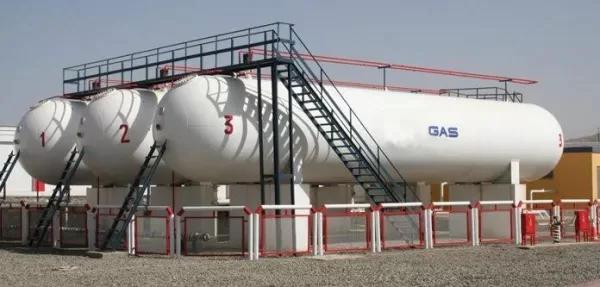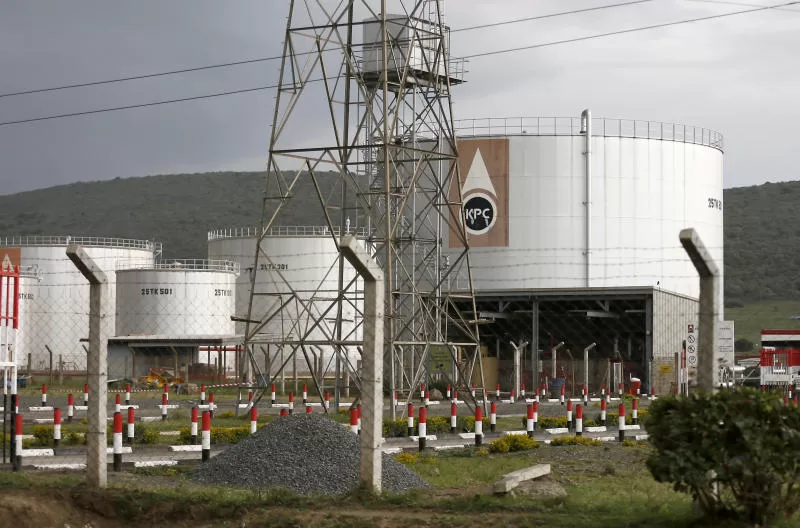Kenya’s government has sidelined a state-owned company in the construction of Mombasa’s cooking gas plant. The Ministry of Energy and Petroleum has sidelined a plan by Kenya Pipeline Company (KPC) to develop the plant. Instead, the ministry has handed the task to Nigeria’s private firm, Asharami Synergy. The private company had unveiled a proposal to develop a similar plant on land owned by the Kenya Petroleum Refineries Limited (KPRL).
The plant will be developed through a public-private partnership (PPP) model. However, the turn of events leaves KPC to bear the costs of the work it had done in preparing to start construction. The state-owned company planned to construct a 30,000-metric-tonne liquefied petroleum gas facility (LPG). Once completed, the plant was seen as a game changer in lowering the cost of cooking gas. Furthermore, the common user would allow industry players to individually or jointly import vast volumes of gas. However, Asharami Synergy has now been handed the responsibility of implementing the facility.
Also read:
Construction of cooking gas handling and storage facility in Changamwe in the offing
Project Factsheet
Significance:
- To make cooking gas cheaper to consumers throughout Kenya.
- To prevent environmental degradation by encouraging a switch from wood fuel to gas.
- To allow industry players to import gas individually or collectively through a common-user facility.
Infrastructure:
- The proposed facility will be a 30,000-metric-tonne liquefied petroleum gas (LPG) plant.
- It will be developed on 23.19 acres of land in Changamwe, Mombasa.
- The plant will be built and operated on a 31-year lease basis.
Developer:
- Asharami Synergy, a Nigerian private company and subsidiary of Sahara Group, will build the facility.
- State-owned Kenya Pipeline Company (KPC) had been ready to build the project but has been sidestepped.
- Kenya Petroleum Refineries Limited (KPRL) competitively selected Asharami to develop the project.
Funding:
- The project will be built under a public-private partnership (PPP) arrangement.
Challenges:
- KPC has incurred a financial loss of KES 192.64 million from its shelved preparatory work.
- The abrupt change in developer has disrupted earlier project timelines and stakeholder expectations
The State of Affairs Regarding the Construction of Mombasa’s Cooking Gas Plant
Asharami, a subsidiary of the Sahara Group of Nigeria, has been given the task of constructing Mombasa’s cooking gas plant. Last year, the company was included in the list of firms that handle fuel imported into the country. KPRL also noted that Asharami was competitively selected and has been favored over KPC for the implementation of the plant. The scope of implementation entails the construction and operation of the plant on a 31-year lease.

Moreover, KPRL will lease 23.19 acres of land located in Changamwe, Mombasa for the project. “KPRL hereby gives notice on the intention to lease…parcels of land to the successful tenderer for the development, construction, operation and maintenance of the facilities,” the company noted in a statement. However, the new deal comes as a blow to KPC that had made early preparations to start building the plant. They aimed to implement the plant to reduce the cost of cooking gas across the country. Moreover, they also hoped to preserve the environment as more people switch to wood fuel. Despite this, it now incurs sh192.64 million in losses.
Also read:
Uganda and Rwanda Revive Plans for Extension of Oil Pipeline from Eldoret Oil Depot
Construction of US $75m liquefied petroleum gas plant in Kenya begins

Leave a Reply